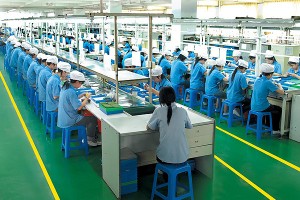 Manufacturing activity was slower in China and the euro region as increased political tensions threatened to cut trade and put a damp outlook on the global economy.
Manufacturing activity was slower in China and the euro region as increased political tensions threatened to cut trade and put a damp outlook on the global economy.
A preliminary reading of the Purchasing Managers Index for the euro area manufacturing industry dropped from 51.8 in July to 50.8, said Markit Economics based in London.
That level is the lowest the index has been in over 13 months and is less than an estimate by analysts of 51.3.
A reading that is over 50 indicates growth.
The recovery in the euro region from the longest recession in its history stalled during the second quarter. It is now threatened by low inflation and a standoff with sanctions with Russia.
A slowdown in China adds to the risks that the second largest economy in the world will miss its target for growth in 2014.
The tensions geopolitically will be more and more critical during the next few months, said one senior economist. The large drop in China remains consistent with a growth slowdown, added the economist. He concluded by saying the recovery in the region was too slow to create a recovery on the global market.
In the euro region, an indicator of the services and manufacturing activity dropped from 53.8 to 52.8.
While this gauge has indicated growth for over one year, the revival in the region has stagnated unexpectedly in the three-month period through the end of June as Italy, France and Germany the region’s three biggest economies, did not grow.
With inflation less than 1% since last October, unemployment close to all time highs and an increase in global risks, the Central Bank in the UK unveiled some unprecedented measure last June and committed to increasing the stimulus if needed.
The uncertainties geopolitically said an analyst, and particularly the crisis taking place in Eastern Ukraine, are threatening to undermine the recovery, which is export-led, at least on a temporary basis.
